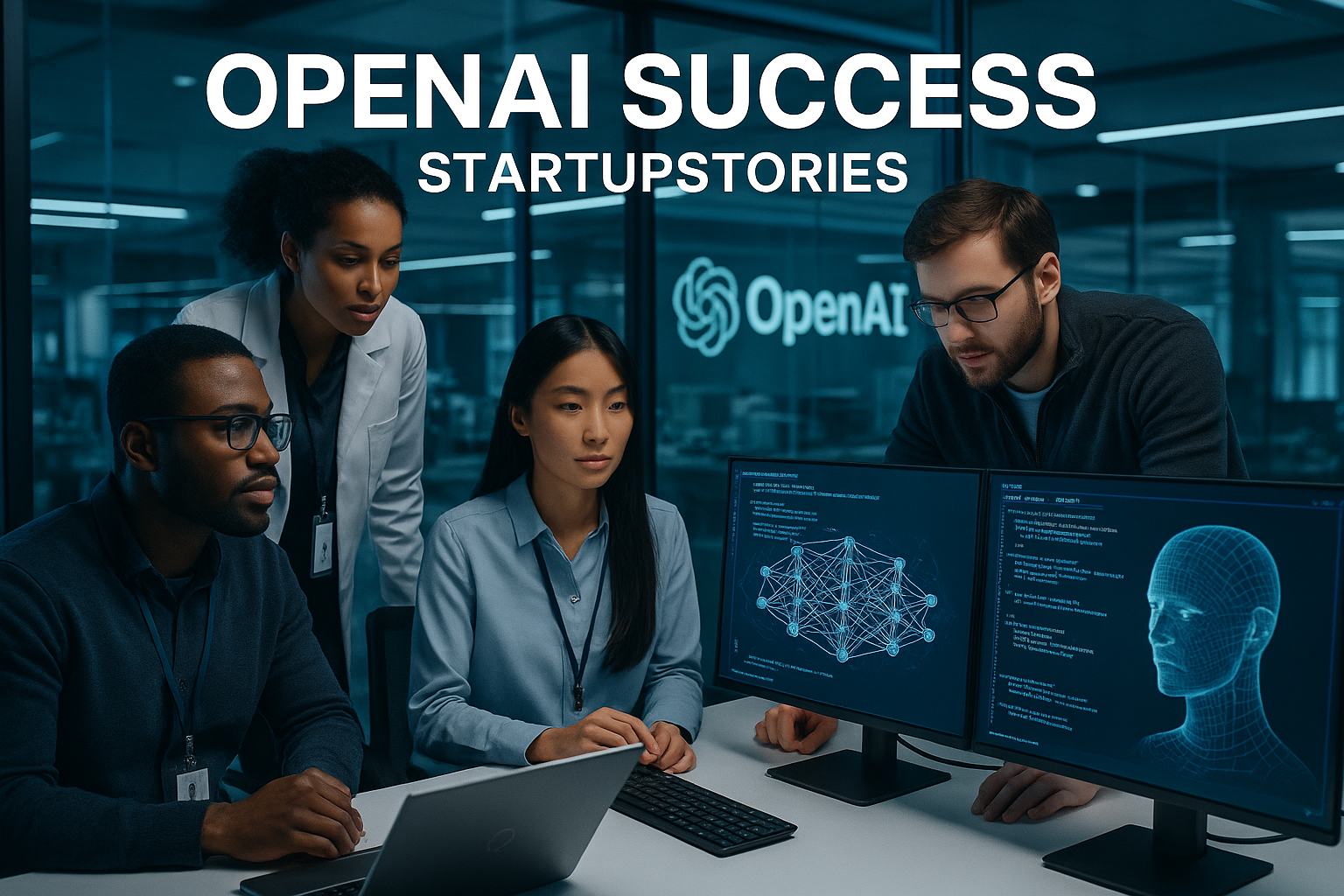What does it take to lead the AI revolution while staying committed to ethics and safety? OpenAI began as a non-profit research lab in 2015 and is now at the forefront of global artificial intelligence. With products like ChatGPT and GPT-4, OpenAI has redefined how humans interact with machines, and its mission to ensure AGI benefits all of humanity sets it apart from traditional tech giants.
Founding Story: A Bold Beginning
OpenAI was founded by a team of tech visionaries including Sam Altman, Elon Musk, Ilya Sutskever, Greg Brockman, and others, with the goal of developing safe and ethical artificial general intelligence (AGI). Unlike traditional startups, OpenAI began as a non-profit. Its mission was not profits but principles: to ensure AI is aligned with human values.
In its early years, OpenAI focused on reinforcement learning, robotics, and ethical AI research. While other tech companies raced to commercialize AI, OpenAI prioritized transparency and collaboration, gaining early credibility in the academic and open-source communities.
Major Challenges
Despite its high-profile founders, OpenAI faced a lack of resources, skepticism from the research community, and rising concerns about AI safety. Building large-scale models like GPT required extensive computational power—an expensive challenge for a non-profit.
In 2019, the organization transitioned to a capped-profit model to raise funds while maintaining its mission. This hybrid approach helped attract investors without compromising ethical integrity, a unique move in the tech startup world.
Game-Changing Innovations
OpenAI's turning point came with the launch of its Generative Pre-trained Transformers (GPT) series. Each version set a new benchmark in natural language processing:
- GPT-2 (2019) stunned the world with its coherent and contextual text generation.
- GPT-3 (2020) brought AI into mainstream attention, enabling tools like AI writers, code assistants, and chatbots.
- ChatGPT (2022) took the internet by storm, reaching millions of users within weeks and reshaping customer support, education, and content creation.
- GPT-4 and GPT-4o (2023–2024) introduced multi-modal capabilities—AI that can understand and generate text, images, and soon, video.
Strategic Partnerships
To scale these innovations, OpenAI formed a groundbreaking partnership with Microsoft. Microsoft invested over $10 billion, integrated OpenAI into Azure’s infrastructure, and embedded AI into Microsoft Office tools. This alliance gave OpenAI the cloud computing scale it needed to build world-class models.
In 2024, NVIDIA also joined as a strategic partner, providing GPU infrastructure and research support—fueling OpenAI’s next generation of models and ensuring dominance in the AI hardware race.
Financial Growth and Market Impact
In just a few years, OpenAI evolved from a mission-driven lab to a $157 billion company (as of 2024), making it one of the world’s most valuable private tech firms. The company raised $6.6 billion in a funding round that saw participation from top VCs, institutional investors, and strategic partners.
Its technology powers applications across industries—from automated legal assistance to personalized tutoring, medical diagnostics, and creative content generation. The demand for AI tools built on OpenAI’s models continues to skyrocket globally.
OpenAI's Future Vision
Led by CEO Sam Altman, OpenAI’s ultimate goal is to build AGI that benefits everyone. Its current focus is on enhancing safety protocols, creating multi-modal systems, and expanding tools like ChatGPT Enterprise for businesses.
The team is also investing heavily in AI alignment research to ensure models act in accordance with human values, even as their intelligence scales exponentially.
Wrapping Up
OpenAI’s story is one of vision, resilience, and responsibility. By balancing innovation with ethics, the company has pioneered a new path in the tech industry—proving that transformative impact doesn’t have to come at the cost of core values. Whether you're a startup founder, AI enthusiast, or industry observer, OpenAI’s journey reminds us that purpose-driven leadership can shape the future.
Frequently Asked Questions (FAQs)
Q1. What is OpenAI’s mission?
OpenAI’s mission is to ensure artificial general intelligence (AGI) benefits all of humanity and is developed in a safe and ethical manner.
Q2. Who founded OpenAI?
OpenAI was co-founded in 2015 by Sam Altman, Elon Musk, Ilya Sutskever, Greg Brockman, and several other leading researchers and engineers.
Q3. What are OpenAI’s major products?
OpenAI’s key products include GPT-3, ChatGPT, GPT-4, Codex, DALL·E, and Whisper—used for tasks like content creation, programming, design, and voice transcription.
Q4. How does OpenAI earn revenue?
OpenAI earns revenue through API subscriptions, enterprise tools like ChatGPT Enterprise, licensing agreements (like with Microsoft), and custom AI solutions.
Q5. What’s next for OpenAI?
OpenAI is focused on building safe AGI, expanding its multi-modal AI capabilities, and making AI tools accessible to individuals and businesses worldwide.
